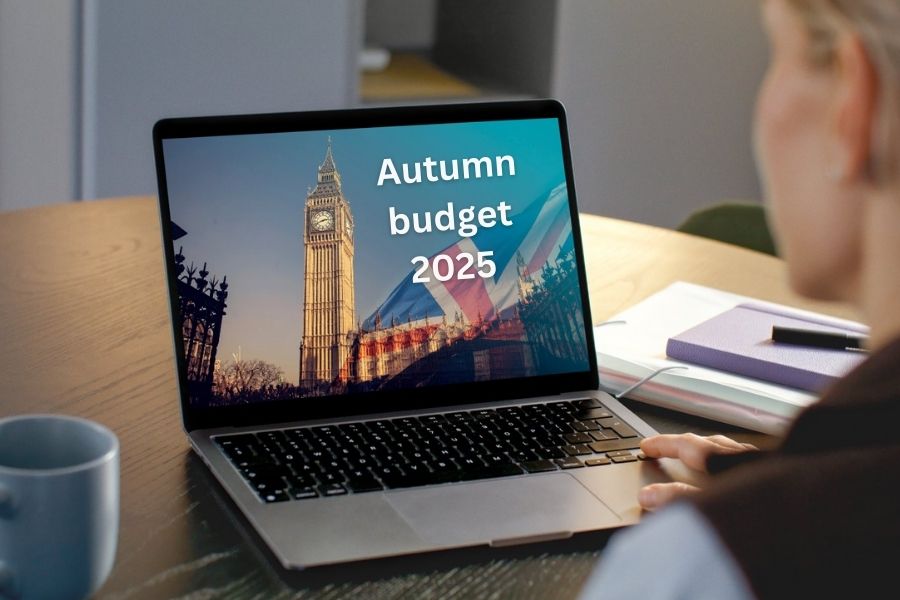After numerous rumours and an early leak of the Office of Budget Responsibility’s report on their findings, Rachel Reeves delivered her 2025 Budget on 26 November 2025 which she stated took the ‘fair and necessary choices to deliver on the government’s promise of change’.
Personal Tax
The government is extending the freeze of the Income Tax Personal Allowance, higher rate threshold and additional rate threshold from April 2028 to April 2031.
Several changes were announced to the rates for property, dividend and savings income:
- The government will create separate tax rates for property income. From 2027/28, the property basic rate will be 22%, the property higher rate will be 42%, and the property additional rate will be 47%.
- From 2026/27, the ordinary and upper rates of taxation on dividends will be increased by 2% to 10.75% and 35.75%. The additional rate for dividend income will remain unchanged at 39.35%.
- From 2027/28, all rates applicable to savings income will be increased by 2%. The savings basic rate will become 22%, the savings higher rate will become 42% and the savings additional rate will become 47%. The Starting Rate for Savings will be retained at £5,000 for 2026/27 and will stay at this level until 5 April 2031.
In addition, certain reliefs will now only be applied to property, savings and dividend income after they have been applied to other sources of income. This change will take effect from 6 April 2027.
From 6 April 2027, the annual Individual Savings Account (ISA) cash limit will be set at £12,000, within the overall annual ISA limit of £20,000. Savers over the age of 65 will continue to be able to save up to £20,000 in a cash ISA each year. Other limits remain £4,000 for Lifetime ISAs and £9,000 for Junior ISAs and Child Trust Funds until 5 April 2031.
The Primary Threshold, Secondary Threshold, Lower Profits Limit, Upper Earnings Limit (UEL) and Upper Profits Limit for National Insurance contributions (NICs) will be maintained at their current levels until April 2031 as well as other employer NICs relief thresholds aligned with the UEL. The Lower Earnings Limit, Small Profits Threshold and the rates of voluntary Class 2 and Class 3 contributions will be increased by 3.8% from 2026/27. In addition, from 6 April 2026, the government will remove access to pay voluntary Class 2 NICs abroad and increase the initial residency or contributions requirement to pay voluntary NICs outside of the UK to ten years.
Employment
The government will charge employer and employee NICs on pension contributions above £2,000 per annum made via salary sacrifice. This will take effect from 6 April 2029.
The government will extend the employer NICs relief for employers hiring veterans in their first civilian role to April 2028.
From 1 April 2026, the National Living Wage will increase by 4.1% to £12.71 per hour. The National Minimum Wage for 18-20 year olds will also increase by 8.5% to £10.85 per hour and for 16-17 year olds and apprentices by 6.0% to £8.00 per hour.
In terms of benefits, the government will increase the Van Benefit Charge and Car and Van Fuel Benefit Charges by CPI from 6 April 2026. The government will delay changes to benefit in kind rules for Employee Car Ownership Schemes until 6 April 2030.
Capital Taxes
The Inheritance Tax nil rate bands are already set at current levels until April 2030 and will stay fixed at these levels for a further year until April 2031.
The forthcoming combined allowance for the 100% rate of agricultural property relief and business property relief will also be fixed at £1 million for a further year until 5 April 2031. Any unused £1 million allowance will be transferable between spouses and civil partners from 6 April 2026, including if the first death was before 6 April 2026.
The government will reduce the Capital Gains Tax relief available on qualifying disposals to Employee Ownership Trusts from 100% of the gain to 50%. This will take effect from 26 November 2025.
Business
The government will introduce a new 40% First Year Allowance (FYA) for main rate expenditure (including most expenditure on assets for leasing and expenditure by unincorporated businesses) from 1 January 2026. From 1 April 2026 for Corporation Tax and 6 April 2026 for Income Tax, main rate writing down allowances will reduce from 18% to 14%.
The government will extend for a further year the 100% FYA for qualifying expenditure on zero emission cars and electric vehicle (EV) chargepoints until 31 March 2027 for corporation tax purposes and 5 April 2027 for Income Tax purposes.
Eligibility of companies for the EMI scheme will be expanded. The government will increase the employee limit to 500, the gross assets test to £120 million, and the company share option limit to £6 million from April 2026.
Access to the Venture Capital Trust (VCT) and Enterprise Investment Schemes (EIS) will also be extended to more companies. The government will increase the VCT and EIS company investment limit to £10 million (£20 million for Knowledge Intensive Companies (KICs)) and increase the lifetime company investment limit to £24 million, and £40 million for KICs. The gross assets test will increase to £30 million before share issue, and £35 million after, from April 2026. However, the rate of VCT Income Tax relief will decrease to 20% from 30%.
A new UK Listing Relief will be introduced which provides a three-year exemption from Stamp Duty Reserve Tax for companies listing in the UK, effective from 27 November 2025
Other matters
- The government will introduce the High Value Council Tax Surcharge, a new charge on owners of residential property in England worth £2 million or more, starting in 2028/29.
- The government will extend the temporary 5p fuel duty cut for a further five months, with the cut being reversed in three stages from September 2026.
- The two-child limit in the Universal Credit Child Element will be removed from April 2026.
- The government will strengthen HMRC powers to tackle fraud within the Construction Industry Scheme, increase the rewards paid to informants of high-value tax fraud and introduce new powers to tackle promoters of marketed tax avoidance.
- However, following consultation, the government will not regulate tax advisers and will work in partnership with the sector to raise standards in the tax advice market.
If you would like to discuss any matters arising from the Budget with an Accountant and Trusted Business Adviser get in touch with us. We are Accountants who offer a range of financial outsourcing services and virtual CFO services. For a free no obligation consultation email info@teamsas.co.uk or call 0118 911 3777.
Use of this information is for reference only. Specialist Accounting Solutions Ltd accepts no liability for any errors therein or any losses or damages arising from it.



